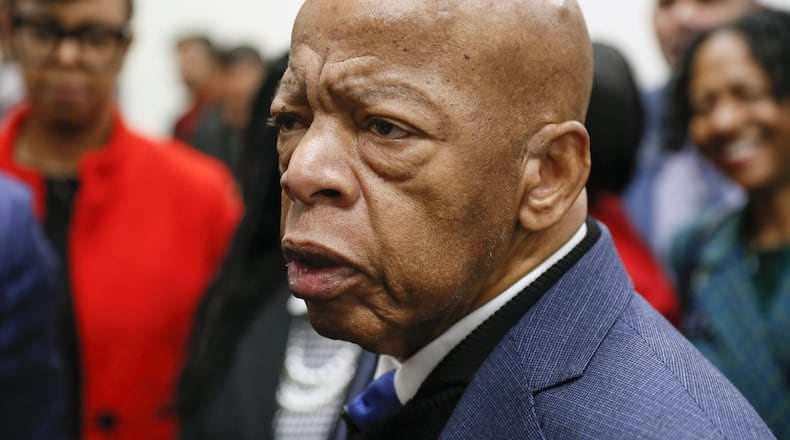U.S. Rep. John Lewis, D-Atlanta, has asked U.S. Homeland Security department officials to reconsider its recent decision that foreign students attending American colleges and universities won’t qualify for visas if their classes this fall are all online.
The department issued guidance in a three-page memo last week that students attending schools operating entirely online may not take a full online course load and remain in the country, to the dismay of many colleges and higher education organizations. The memo said the federal government will not issue visas to those students.
Homeland Security officials recommended students “take other measures, such as transferring to a school with in-person instruction to remain in lawful status or potentially face immigration consequences including, but not limited to, the initiation of removal proceedings.”
Lewis wrote a letter Friday to the department criticizing the changes, saying his office “received desperate and concerned calls from alarmed constituents and educational institutions throughout metro Atlanta.” More than 19,000 students were classified as “out of country” last year by the University System of Georgia, which oversees operations at the state’s largest public colleges and universities.
“As many universities plan for online or hybrid learning this fall, this needlessly punitive proposal puts international students at risk of illness or deportation if they continue their education in the United States,” Lewis wrote. “The result could deter these individuals from pursuing studies in this country and will inevitably result in additional financial and travel challenges if institutions’ operating statuses change mid-term.”
Several high profile universities, such as Harvard and MIT, sued to block the policy. Emory University, Georgia’s largest private institution, on Thursday said it plans to join an amicus brief supporting the lawsuit.
On Monday, 17 states and Washington, D.C. sought an injunction against the federal policy. Georgia is not one of the states involved in the legal action.
About the Author
Keep Reading
The Latest
Featured



